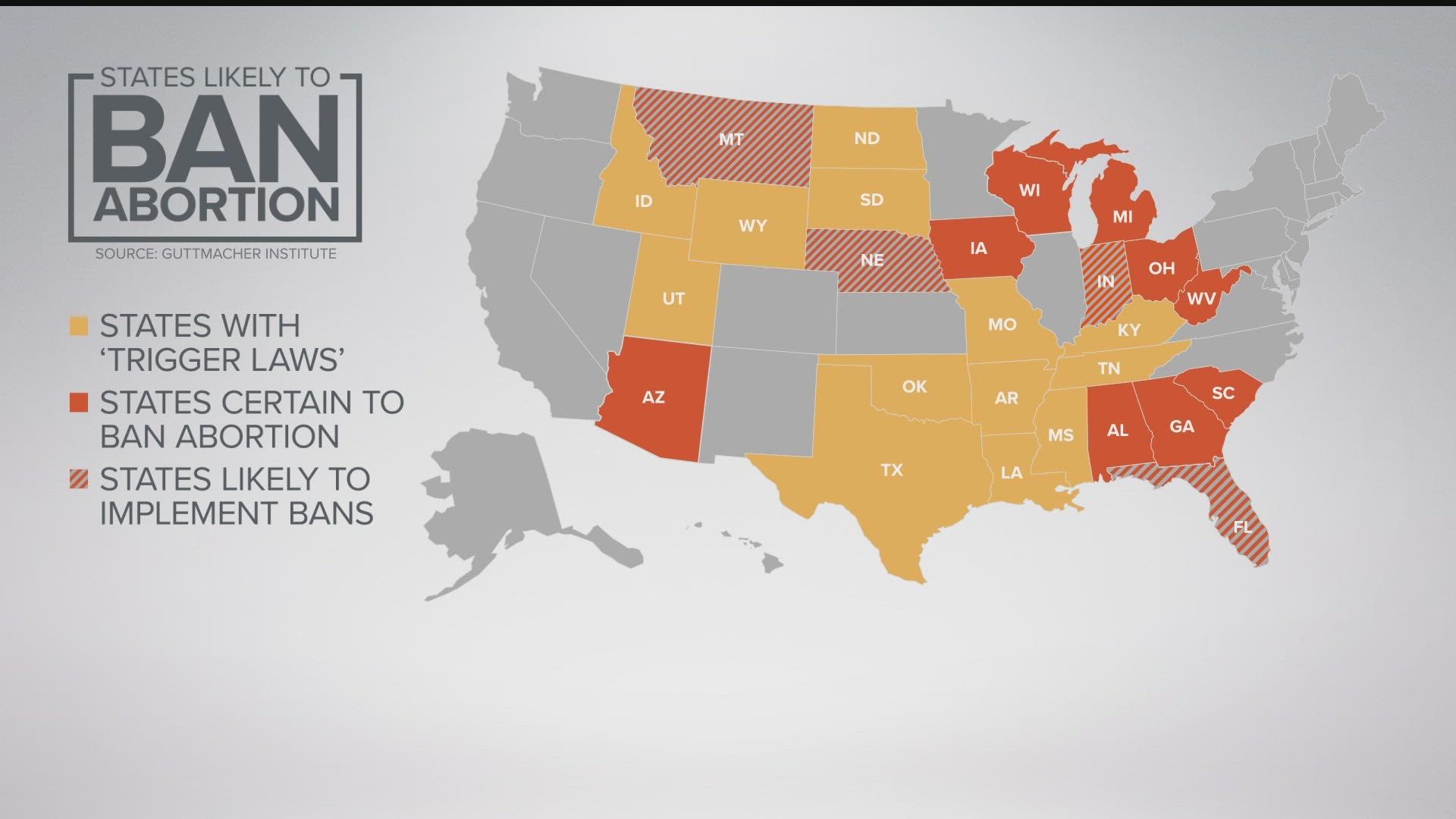ST PAUL, Minn — If the U.S Supreme Court were to throw out the Roe v. Wade decision, abortions would remain legal in Minnesota due to a state's Supreme Court ruling back in 1995.
The ruling, known as Doe v. Gomez, guaranteed the right to abortions in Minnesota, and required the state to cover the cost for low-income patients.
"In order for us to move forward here in Minnesota, we do have to get rid of Doe versus Gomez," said Scott Fischbach, who heads Minnesota Citizens Concerned for Life — a group that stages annual anti-abortion rallies at the State Capitol.
The group began working to restrict access to abortions in Minnesota even before Roe v. Wade.
"But getting rid of Roe versus Wade, and then Doe versus Gomez, are going to be big steps in the right direction for us to ultimately restore protection for unborn children in Minnesota where, through most of our history, the unborn were protected," Fischbach added.
The majority of the current Minnesota Supreme Court was appointed by Democratic governors — deeming them unlikely to overturn Doe v. Gomez — but the top three GOP candidates for governor all support a ban, and would, over time, bring in a different high court lineup.
"The decisions in November will have huge repercussions for generations to come on women's health, safety and personal health care choices," said Gov. Tim Walz in a press conference. "
Minnesota's Planned Parenthood also serves both of the Dakotas, which have trigger laws that will automatically impose abortion bans if Roe v. Wade falls.
"We are certainly working on ways and funds and support and resources to help people travel from a restricted environment to one in which they can get services," said Dr. Sarah Traxler with Planned Parenthood.
At the State Capitol, Republicans will continue to press for more restrictions.
"Yes, they could pass bills that would challenge Doe v. Gomez — the governor would have to sign them — so again, we would need consensus because it has to go through two bodies and through a governor," said Sen. Michelle Benson.
If Republicans were to control the legislature, pass a ban in Minnesota and get it signed by a future Republican governor, it would still face a legal challenge because of the Doe v. Gomez ruling. For this reason, some are calling for it to be put on the ballot as a constitutional amendment because proposed amendments don't need the governor's signature.

